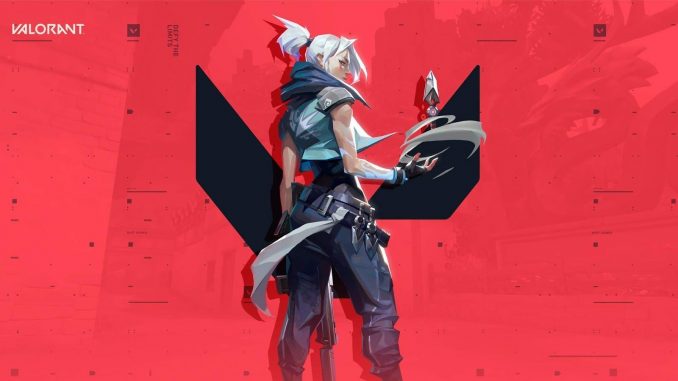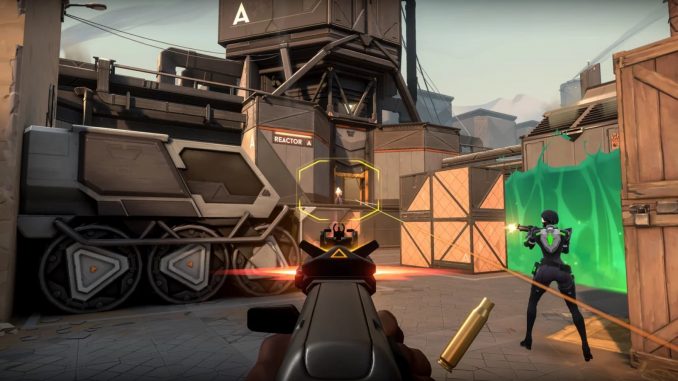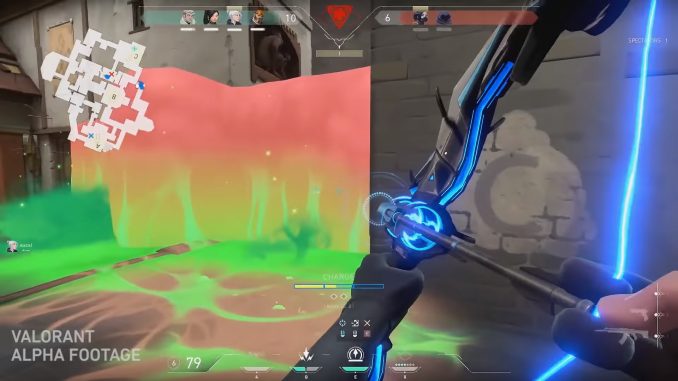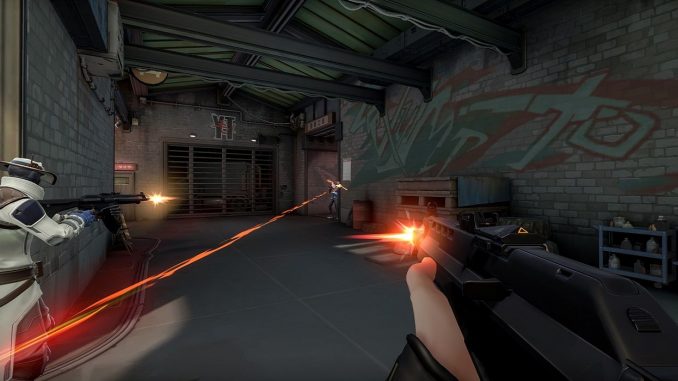
Currently, Riot Games is looking to capitalize on the steam its new IP Valorant is generating. From a plethora of popular streamers to implementing drops to get into the closed beta, they are going all out to make sure that its new competitive tactical shooter is on everyone’s minds. Unfortunately, the new game is also a vehicle for the developer to install a new anti-cheat system. While Riot Games tries to put a positive spin on why it is needed, gamers need to ask themselves whether or not they should boycott Riot Games over Valorant’s invasive anti-cheat system.
Unfortunately, there are no watchdogs in the video game industry that are looking out for the consumer. Rather than major video game news outlets keeping us informed about something like this, the community has to rely on individuals who are capable of discovering these practices and are able to realize the potential problems with it.
While there have been some annoying forms of anti-cheat systems over the years, Riot Games’ new anti-cheat system, Riot Vanguard, leaps ahead of them all in that this kernel anti-cheat driver begins running the second your PC starts up while having the same privileges as if it were an administrator. On top of that, it never turns off. Valorant doesn’t need to be started up or running for this new system to run in the background of your PC.
So as outrage over this new system started gaining momentum, Riot Games has been quick to try and stop it before it gains too much traction. To that end, Valorant anti-cheat lead Paul “RiotArkem” Chamberlain” started talking on Reddit to explain the developer’s reasons for its system being so invasive and how it would stop cheaters. To assuage concerns about consumers’ information Chamberlain said that, “The Vanguard driver does not collect or send any information about your computer back to us. Any cheat detection scans will be run by the non-driver component only when the game is running.”
While that sounds fine, Chamberlain’s statement needs to be taken with a heavy dose of salt. After all, it is not the first time a developer would make a claim about something only for gamers to find out that they were lying. Ubisoft is a great example of a developer that would lie about a particular game not coming with DRM only for it to not be the case (multiple times). Or that certain DRM doesn’t affect a game’s performance.

Yet while Chamberlain claims that this new anti-cheat system, which is always on, will only scan when the game is running; that doesn’t seem to be the case. In an email sent to Ars Technica, in the event of a bug being discovered, he claims that the system has been developed for it “to be easy to update on whatever cadence is required (separate from game update cadence) so we would likely be able to respond within hours.”
Despite the claim that there are no scans being conducted except for when the game is running, this sounds like Riot Games is constantly monitoring the system and can shut it down whether the user has started up the game or not. In fact, that is exactly what Riot Games will do according to Chamberlain, “In extreme cases, we would work with our patcher team to automatically remove Vanguard from all players’ computers.”
In light of this, it sounds as if Valorant’s anti-cheat system is giving Riot Games unfettered access to the user’s computer for the company to do whatever it wants. Which brings up the question of how much surveillance capability does Riot Games have at its fingertips? In a blog post from Riot, the dev claims that, “This isn’t giving us any surveillance capability we didn’t already have.”
The post continues,
“If we cared about grandma’s secret recipe for the perfect Christmas casserole, we’d find no issue in obtaining it strictly from user-mode and then selling it to The Food Network. The purpose of this upgrade is to monitor system state for integrity (so we can trust our data) and to make it harder for cheaters to tamper with our games (so you can’t blame aimbots for personal failure).”
Rather scary to think that Riot Games already has such access to a person’s computer which contains all kinds of information from business to personal.

Obviously, Riot Games is trying to be coy in what it says about Riot Vanguard, but what it has said is alarming, in my opinion. Because, it continues to sound more and more like Riot Games has far too much access and ability to what they can do on a gamer’s PC. Yet there is too great of a risk of Riot Vanguard being on your PC and used as a backdoor. Which should be a terrifying proposition to any gamer considering the extent and expansive reach of malevolent intent in the video game industry. The constant battle between devs and cheaters and hackers is a familiar story to everyone who plays games. So why add an extra element into the equation for hackers to exploit?
This move by Riot Games is especially puzzling since the new anti-cheat system has already failed since, during the current closed beta, cheaters have quickly appeared. In fact, it took only two days, closed beta launched April 7, before the first cheater was banned on April 9th. For a new system that, according to Riot Games, was audited by three different external security groups before launching, that is quite disturbing.
Suffice to say, Riot Vanguard’s invasive approach to the problem is not the right answer. At least it doesn’t sound like it is to me and that seems to be the case for independent security researcher Saleem Rashid who spoke to Ars Technica on the subject saying,
“Whenever you have a driver like that, you’re at risk of introducing security and reliability issues to the computer. You don’t get as many exploit mitigations in device drivers as you do in normal applications, and a bug will crash the entire OS, not just the game.
DRM like this probably stops cheating in the very near term, but I’m not convinced it helps in the long run. All it takes is for someone to analyze the driver from outside of Windows and then apply similar techniques they use to defeat other anti-cheat systems. So it looks like it introduces a large attack surface for little benefit.”
From being used as a backdoor to allegations from users that it is affecting their PC and other games’ performance, to even the developer itself seemingly having unfettered access to your PC, these should be reasons enough to stay away from Valorant. But there are a couple of other reasons why gamers should consider boycotting not just Valorant, but Riot Games indefinitely.

I say Riot Games itself, not just Valorant, because the developer plans to implement the Riot Vanguard driver into League of Legends and future games developed by the company. So if you were hoping to play LoL and not deal with this invasive anti-cheat system, you’re out of luck.
But the biggest reason why gamers should be running away from Riot Games is the same big concern facing the world today: China. Since 2015, Riot Games has been completely owned by Chinese multinational conglomerate Tencent. So it’s not just the developer you have to worry about who could abuse their access to everything on your PC, but the Chinese government now having access to it as well.
When Tencent took over the company, its structure changed. Studio members now participate in a “cash-based incentive program” which means the more overall success Riot Games achieves, the bigger the payout for its workers. Considering that your information is a highly sought-after commodity for a plethora of businesses, it is only a question of when will Riot Games use its unfettered access to make even more money? It is also a matter of when the Chinese government will demand Tencent hand over access to your information.
Now I could be wrong about everything with my conclusions, allegations, and assumptions.. After all, I am not an expert. But I am trying to make an informed decision based on the information I have at hand. It is just a shame that the video game news outlets will not take a hard look at Riot Games and its new system. We need to know more and we need to be informed. We need video game news outlets to be for the consumer and not focus on chasing clickbait or being afraid to lose access to a developer.
But based on what I know, as a gamer, as a consumer, and as someone who values their privacy I can not allow this reprehensible piece of invasive software to be on my computer. There is a right way and a wrong way to combat cheaters and hackers. But essentially handing the keys to your castle to them is absolutely the wrong way. This is a case where the cure is worse than the disease.
Should Valorant see success, then it will be for certain that other developers will follow suit with this new, invasive form of anti-cheat software.
So should you boycott Riot Games? In my opinion, you should not only boycott Riot Games but tell everyone you know to stay away from this developer.
Editor’s Note: I hope you enjoyed the article. If you would like to support this site, you can donate via Paypal or even check out our merchandise on RedBubble. Here are some of the items available.







[…] We continue to warn and advise western gamers not to purchase Chinese-owned and developed video games, such as Black Myth: Wukong which had its own list of banned talking points, for a number of reasons that includes censorship, the support of a fascist government, and the potential threat such games pose to your privacy. […]
[…] Army in its goals since Riot Games, which developed League of Legends and Valorant, released an invasive anti-cheat software, named Riot Vanguard, which never turns off and has the same privileges as an admin program that […]
[…] AAS also requires real-ID verification systems and disclosure of a person’s age. Then, in 2020, Riot Games releases an invasive anti-cheat system which has the same rights and privileges as an administration program on your PC. This anti-cheat […]
[…] games to enforce the Chinese Communist Party’s time limit. Back in 2018, Tencent-owned developer Riot Games implemented an Anti-Addiction System (AAS) that tracks a player’s game time and gives the […]
[…] of stripping away the right to own the games we buy, acceptance of draconian DRM, being fine with invasive DRM, and a multiplayer landscape that is worse than it was in the 1990s and early […]
[…] starts up and will continue to run in the background whether the gamer is playing Valorant or not (Should Gamers Boycott Riot Games). So again, the infrastructure is there because the CCP has access to the information of everyone […]